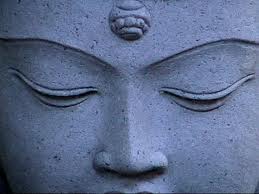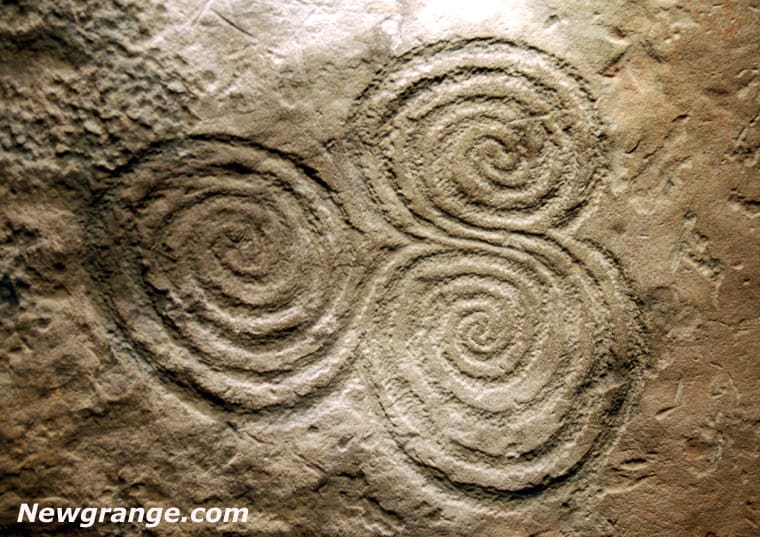
Alfie
What’s it all about, Alfie? Remember the song? Well, maybe not. It’s a song written by Burt Bacharach and performed by numerous artists, and I think of it as belonging to my parents’ generation. There was a rendition of it in 1966 by Dione Warwick—which came out just when I was discovering the Beatles and the Stones—and the Blues. But for some reason this line—What’s it all about, Alfie?—has stuck in my mind all this time. I think it’s partly the conjunction of this profound question, What’s it all about?, with someone called Alfie, who doesn’t sound like he’s likely to have the answer, or even to have encountered the question. The song’s answer is…Love, which is a cliché or a profundity, depending on your perspective. But for me the question is connected with our Zen questions, What is this? Who am I? with Mu, and with my own bewilderment and the aspiration that has led me to practice in a number of spiritual traditions and finally to Zen.
One of the practices I engaged in before I came to Zen is called Prayer of the Heart, the inner repetition of the words ‘Jesus Christ have mercy [on me a sinner],’ a practice that originates in St Paul’s injunction to ‘pray without ceasing.’ This was a valuable practice for me—and also a source of great frustration, since I believed that it might be possible for me to maintain this practice ‘without ceasing.’ When this did not happen, I initially assumed that it was because I did not try hard enough and/or that my aspiration was simply not strong enough. I finally concluded, not without some misgivings and uncertainty, that it was not possible for me to pray without ceasing. This was a great relief and enabled me to be more receptive to Zen practice, which I had been inclined to regard as laissez-faire, as in, eat-when-hungry, sleep-when-tired, anything-goes sort of thing, or else as formidable and demanding, as in the many stories of shouts and blows falling like raindrops…
Nowadays when I hear teachers of meditation in different traditions say that we must learn to be present to each moment as it unfolds, I begin to get upset. But that’s impossible, I say. For me, at any rate. The fact that I still get upset is a measure of my ongoing attachment to the idea of praying-without-ceasing, although this attachment takes on increasingly subtle forms. Sometimes I feel, as I did last week when I came off sesshin, that I am slowly sliding backward down the hill of practice that I have worked so hard to climb, that the aspiration that was so immediately present last month, last week, during sesshin, yesterday even, has deserted me. Sometimes Mu is my closest companion, I wake up to it in the morning, it accompanies me throughout the day, I touch base with it before I close my eyes at night—and sometimes it is like a friend from whom I have drifted apart, whom I remember only every now and then, and when I remember, I am filled with self-reproach and sadness for my neglect of my friend instead of rejoicing at having remembered and resolving to renew the friendship…
This is the story of what I call my pray-without-ceasing syndrome. When I say it’s a story, it’s not hard to see through it. I have only to meet my distress without trying to change it, or make it go way, or substitute something else, like a prayer, for it. This is what I call the mercy of Zen: I do not have to impose a special state of pure and clear mindfulness on this particular trouble or on anything that happens to arise…
But that doesn’t mean I don’t long for the clear, pure state. My pray-without-ceasing syndrome persists; it is a beginningless habit, if there ever was one. How to live in a world that is not pure and uncomplicated either, how to feel at home when everything is changing, all the time, including what I think of as myself? Sometimes I say that my practice is ‘This too is It,’ as a sort of antidote, perhaps, to the objection that frequently arises ‘Surely this cannot possibly be It.’ And sometimes I cannot wrap my mind around this statement, This too is It, sometimes I do not know what it means, or what I mean by it, or how it can serve as my practice.
But there is a reason we speak of practice: practice and repetition are necessary to address a mental habit like this one, not by opposing it directly and trying to wrestle it to the ground (I have satisfied myself that this does not work), but by shifting my attention to the one who is dim and dull—or in my case, sad and self-reproachful—and asking the question, Who is the one who experiences these feelings? Who am I? And ultimately, Mu…
Mu is the question that I started from—What’s it all about?—Mu is the mystery, Mu is the unceasing prayer. I can’t initiate it, I can’t maintain it, but even though I come and go, I can’t separate myself from it. As Reb Anderson says, Zazen does not prefer success or failure, does not start when we start to make effort, does not stop when we stop…I may long for some kind of pure and uncomplicated state of awareness, but (as someone said to me when I practiced Prayer of the Heart) longing to be able to pray is also a form of prayer. [Oh Lord, help my unbelief. ]This longing for Mu is also Mu.
And it is not necessary to know, in the sense of a conceptual understanding. The meaning of ‘This too…’ is far less important than ‘just-this.’ Dogen says ‘realization is reality right now.’ To me, this means that my practice is to make things real for myself. Just-this, or Mu, is the one real thing, the one pure thing, always here, never absent, the Dharma which is always arising, always changing form, never the same, excluding nothing…
In working with Mu, sometimes I have the experience, as I’ve said, that it is like a distant friend. There is the effort to make contact, and a weight of inertia that opposes it. And this is where practice comes in again: I become friendly with Mu by means of repetition, by taking advantage of the opportunities that present themselves, by turning away from story toward reality. It is not a great weight I have to lift or a great wall I have to knock down: I don’t have to do anything in order to meet it, rather I have to do nothing, to employ the knowledge of not knowing. And at the same time I remember that doing nothing is not nothing, that it requires a subtle kind of effort, of letting be, rather than letting go, which can entail pushing something away…
Although we practice doing nothing, the world is on fire. In seeking Mu in the question, What’s it all about? I find that my aspiration draws urgency from the awareness that, as Wu-men puts it in his commentary on the koan, we are here on the very cliff edge of birth-and-death. Or as the ghost says, time passes swiftly…each of us should strive to awaken…
